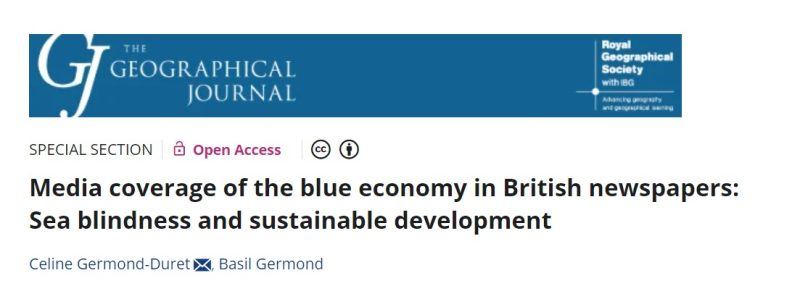

While the ocean space has long been ignored by social sciences, the past 15 years have witnessed an increased interest in the marine environment by scholars in Human Geography. The academic literature on the blue economy, almost non-existent a few years ago, is now burgeoning. The academic debate has offered some critical assessment of blue economy initiatives, but more needs to be done to address the true place of environmental protection within a blue economy, and to put people at the centre of concerns and analyses. Of particular concern, is the ambiguity of the blue economy concept and the confusion over its social and environmental sustainability, which can ultimately result in harmful practices. An important question is then how should social scientists in general and geographers, specifically, engage with these debates, and in particular how should the potential human and social costs of the blue economy be investigated and addressed while assuring justice and fairness? The papers presented here share the vision that environmental sustainability, justice and equality should be at the heart of the blue economy; not just conceptually, but practically too. The papers pursue efforts to identify blue economy risks and the mechanisms through which they occur; assess the place of inclusion and participation in a sustainable blue economy; define what blue economy policies should include to drive just and sustainable practices; and identify where the dominant understandings of the blue economy and its priorities are coming from. In other words, they put considerations of justice and broader cultural structures at the centre of their concerns and analysis. They also highlight the need to bypass geographical boundaries and gain insights from other disciplines and methodologies to grasp such an encompassing concept, and foster not just a blue economy with social justice, but a blue economy for social justice.
This article is available from here.
How to cite: Germond-Duret, C., Heidkamp, C.P. & Morrissey, J. (2022) (In)justice and the blue economy. The Geographical Journal, 00, 184–192. Available from: https://doi.org/10.1111/geoj.12483




